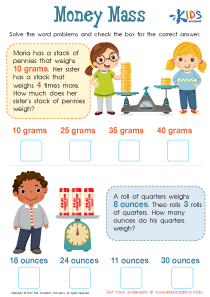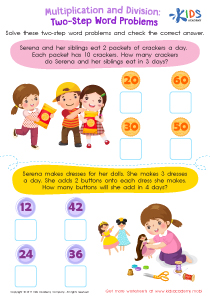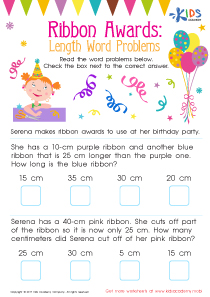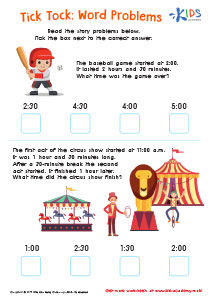Extra Challenge Two-step Word Problems Worksheets for Ages 3-9
3 filtered results
-
From - To
Enhance your child's problem-solving skills with our "Extra Challenge Two-Step Word Problems Worksheets for Ages 3-9"! These engaging worksheets are designed to promote critical thinking as young learners navigate through fun scenarios. Each carefully crafted word problem encourages children to apply mathematical reasoning, improving their arithmetic abilities and comprehension. Tailored for early learners, these worksheets align with developmental stages, providing an exciting challenge that keeps kids motivated. Ideal for classroom settings or at-home learning, our two-step word problems not only reinforce math concepts but also foster independent learning. Download now and watch your child excel in math with confidence!
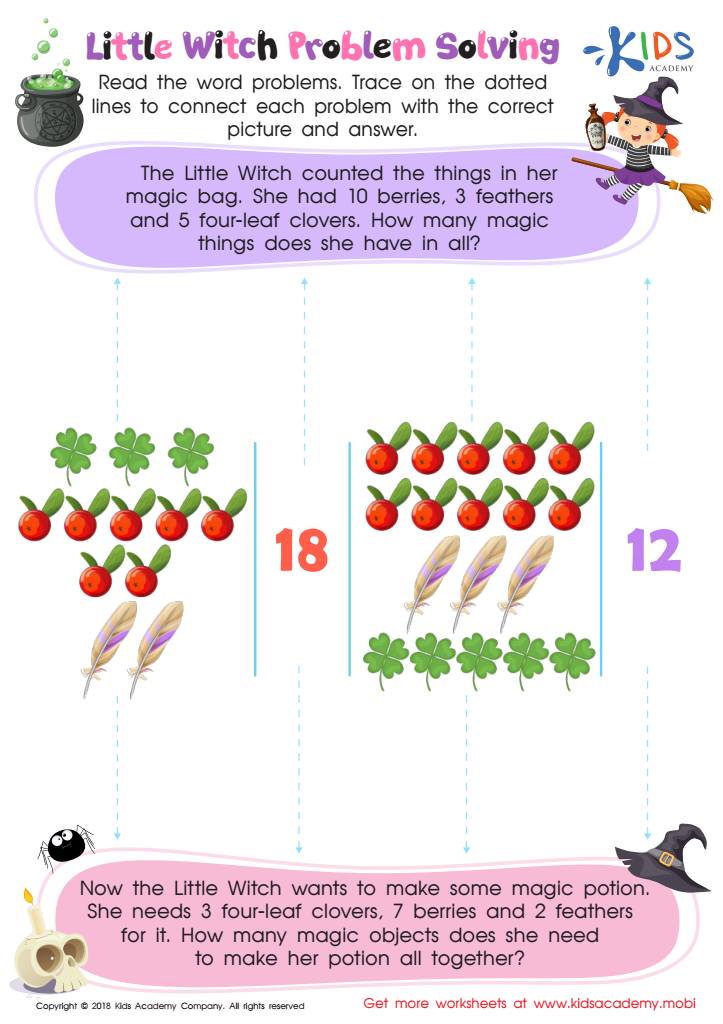

Little Witch Problem Solving Worksheet
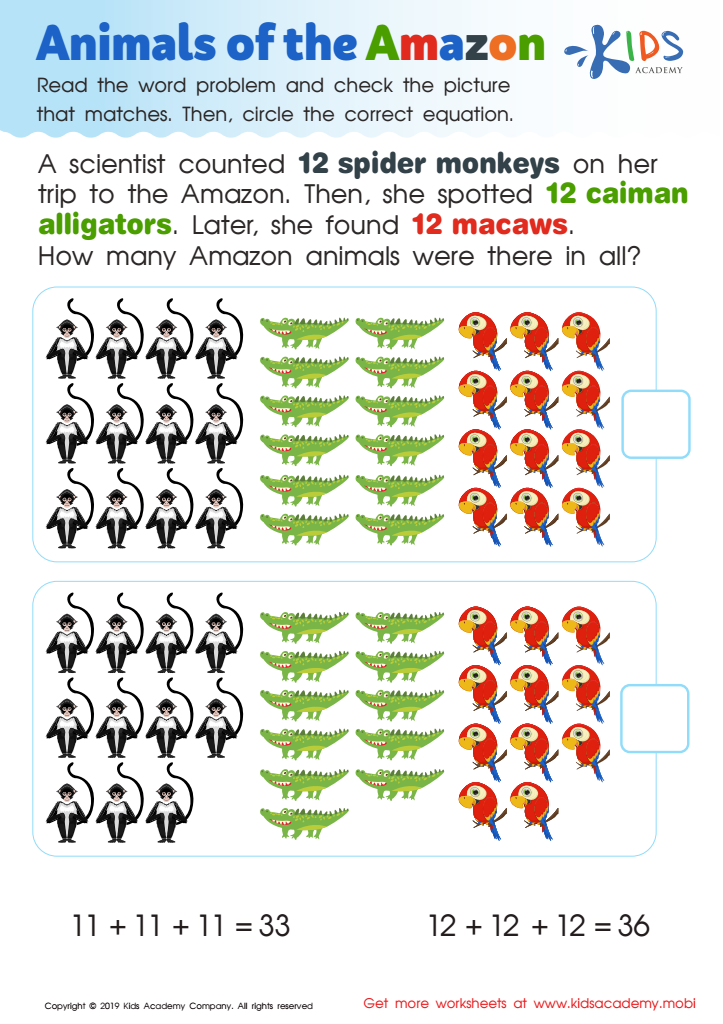

Animals of Amazon Worksheet
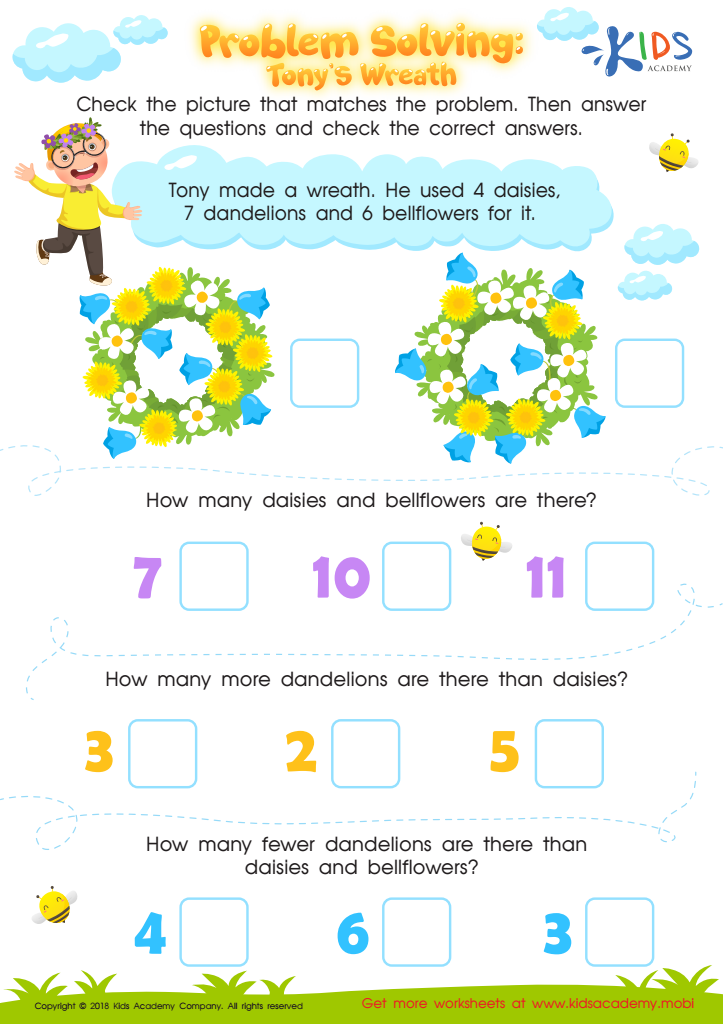

Problem Solving: Tony's Wreath Worksheet
Parents and teachers should care about Extra Challenge Two-step Word Problems for Ages 3-9 because these problems significantly enhance critical thinking and problem-solving skills. At this age, children are developing their cognitive abilities, and engaging them with two-step word problems encourages logical reasoning and the ability to process information methodically.
These challenges also help children understand mathematical concepts in real-world contexts. As they decode narratives and extract relevant information, they learn to apply math in everyday situations, which is crucial for their overall development. Furthermore, two-step problems require persistence and resilience, as they often necessitate multiple calculations or methods to arrive at a solution. This fosters a growth mindset, promoting the idea that effort leads to improvement.
Moreover, these word problems aid in improving reading comprehension, as children must interpret the language to understand phrasings and instructions. By nurturing these skills at a young age, parents and teachers prepare children for more complex mathematics in the future.
Lastly, tackling two-step problems can be a collaborative and fun experience, promoting teamwork between peers or with parents, thus enhancing communication and social skills. Engaging with these mathematical challenges ultimately supports holistic development in early learners.
 Assign to My Students
Assign to My Students





